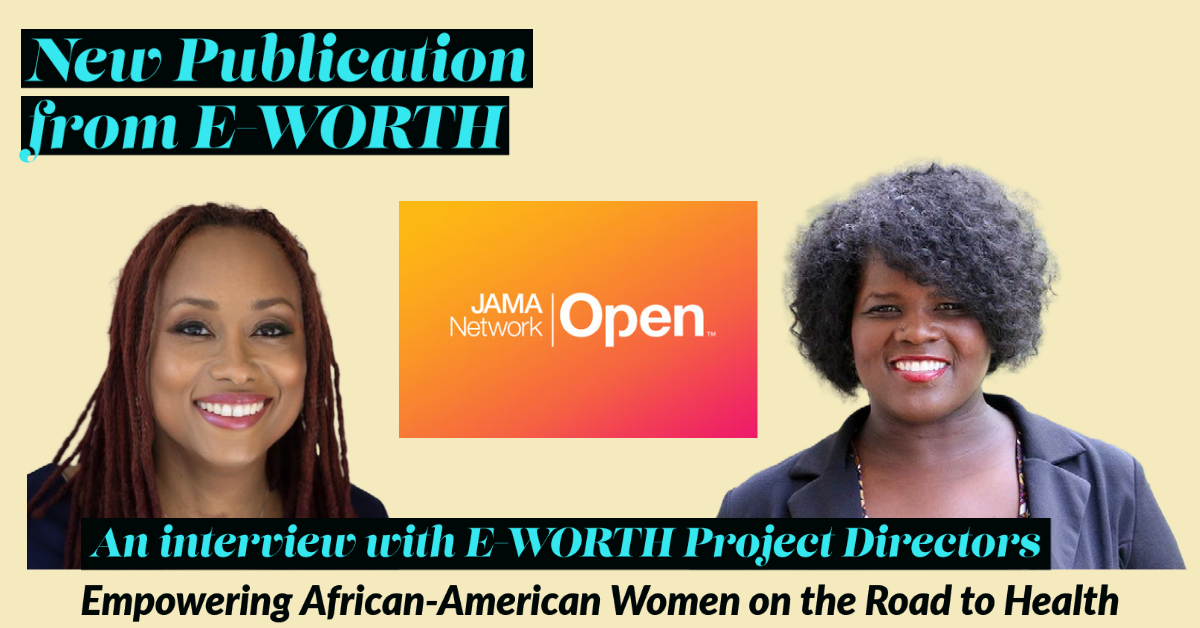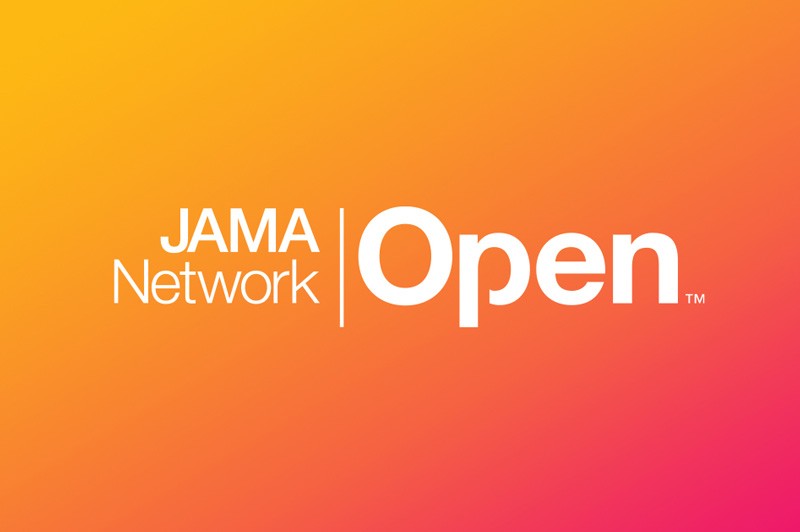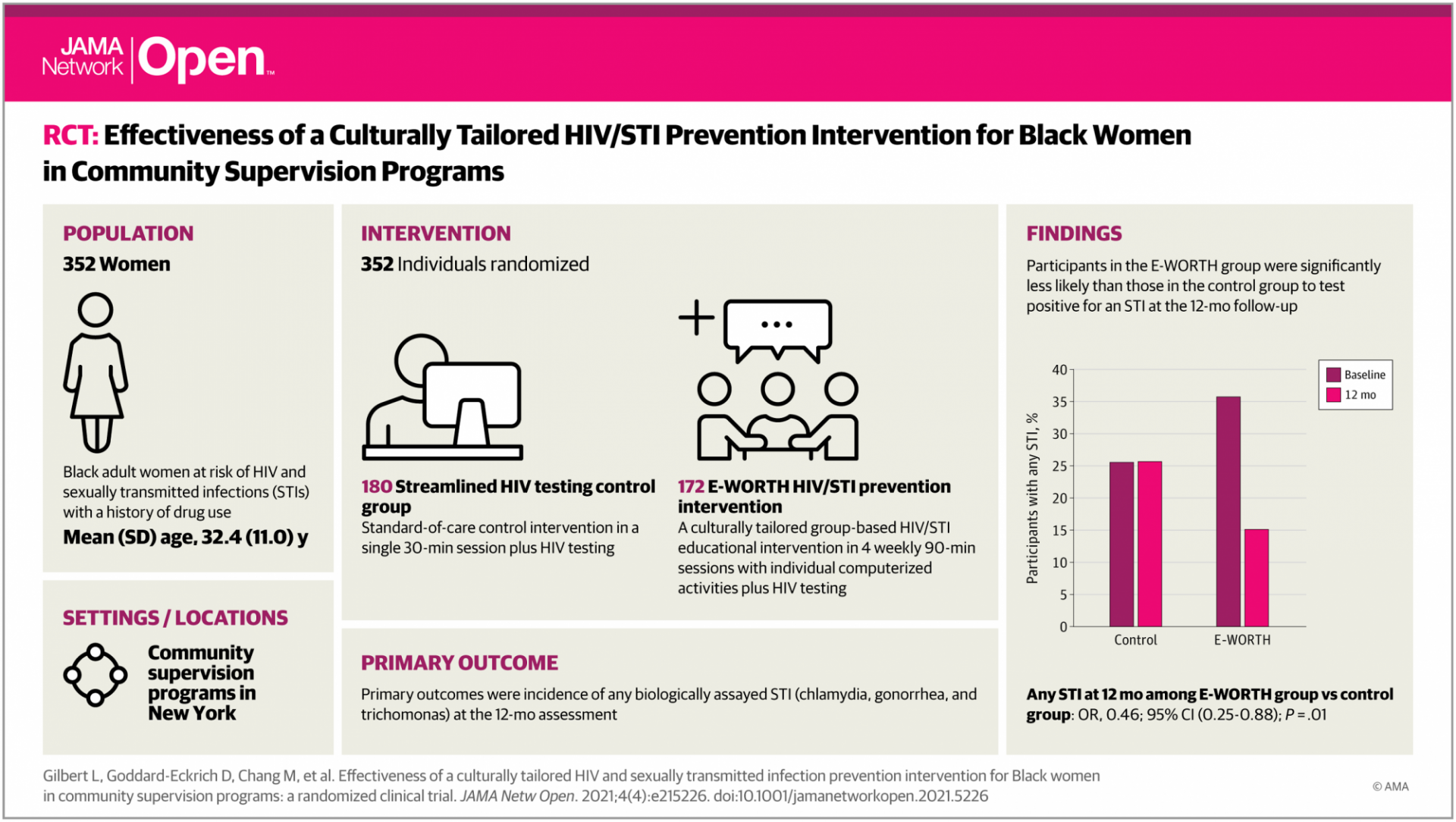An interview with the two scientists who directed the E-WORTH program, Dr. Dawn Goddard-Eckrich and Dr. Karen Johnson, shares the significant findings in a new publication about the randomized clinical trial.
Introduction (excerpted from E-WORTH) and interviews conducted by Eleni Vlachos
Cracks in the system
Why do Black/African American justice-involved women in the United States suffer disproportionately from HIV and sexually transmitted infections (STIs), and how might this disparity be addressed?
One research study, E-WORTH, aimed to find out. A recent outcome publication entitled “Effectiveness of a Culturally Tailored HIV and Sexually Transmitted Infection Prevention Intervention for Black Women in Community Supervision Programs” addresses these questions and more.
Black women in community supervision programs -- the largest segment of the criminal justice system that includes probation, parole and “Alternative-to-Incarceration” programs -- are heavily impacted by concentrated epidemics of HIV and sexually transmitted infections (STIs). In fact, a 2018 study found that Black women in these programs had 23.1 times the rate of new HIV and STIs compared to non-Hispanic white women.
The study team shares, in this recent publication that: “These disproportionately high HIV infection rates among Black women are due to myriad factors rooted in structural racism. These factors include provider discrimination, racial inequities in access to HIV treatment, residential segregation, segregated social and sexual network, racialized drug laws and mass incarceration. Racialized drug laws (e.g., crack sentencing laws which resulted in 100:1 sentences longer than cocaine sentences) and racialized policing practices have led to a vast overrepresentation of Black individuals in community supervision programs.”
The impact of culturally tailored interventions
The study team found that “Accumulating research has highlighted the effectiveness of culturally tailored HIV/STI interventions for Black women. However, there remains a dearth of such interventions.” To address this gap, a randomized control trial, aptly named Empowering African American Women on the Road to Health, or E-WORTH, was designed by and for Black women. E-WORTH is a new cultural adaptation of WORTH, which was selected as a best practice by the CDC, and builds upon the historical strengths, resilience, and sense of community that Black women share.
The success of E-WORTH was due in large part to the incredible research team who oversaw its design and implementation. The concept -- drawing on the resilience and community Black women share to create an intervention designed for and by Black women -- was key to reducing racial health disparities among these justice-involved women.
E-WORTH contains Afrocentric themes of historical trauma and resiliency stemming from slavery to Jim Crow to the mass incarceration of Black individuals, and is designed to be delivered in low resource settings such as community supervision programs. The randomized clinical trial for E-WORTH ran from November of 2015 through August of 2019, when the last follow-up was conducted.
Research findings were striking
Compared to control participants, who received a streamlined HIV intervention, participants assigned to E-WORTH had 54% lower odds of testing positive for any STI at the 12-month follow-up and reported 38% fewer risky sexual acts over a 12-month follow-up period.
In the publication, the study team concludes, “The magnitude of effects found across biological and behavioral outcomes in this study demonstrates the feasibility and effectiveness of implementing E-WORTH in ‘real world’ CSPs. The findings lend further evidence of the promise of culturally tailored HIV/STI interventions for Black women.”
This holds promise for reducing the disproportionate burden of HIV/STIs among Black women. But just how was this intervention culturally tailored, and implemented? I spoke with two scientists who directed the E-WORTH program to answer these questions and more in an interview with Dr. Dawn Goddard-Eckrich and Dr. Karen Johnson.
Interview with Dr. Dawn Goddard-Eckrich
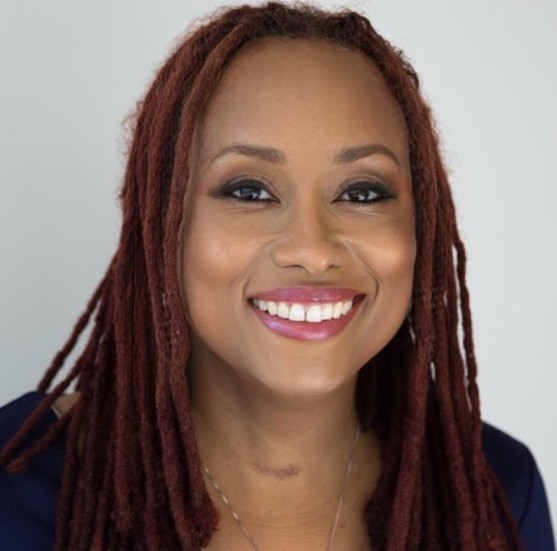
Dr. Dawn Goddard-Eckrich is the Project Director of E-WORTH, and an Associate Director at SIG.
Tell me more about how you came to be involved with E-WORTH? What was your role as Project Director?
I was part of the original WORTH project helping conceptualize the multimedia portion. I served as Project Director. When I went on maternity leave, Karen assumed responsibility as Project Director. One of my mentors in my doctoral program was Dr. Fullilove and I did a class around criminal justice with him. We spoke about the history of why justice-involved women are where they are, to understand the historic structural things that led to where they are. Not that the justice-involved women don’t accept any responsibility, but it helps put some things into context.
I said we really needed to include a historical component to really give a historical context on the society and cultures.
E-WORTH was designed for and by Black women. How significant was this for the women participating?
Huge. They didn’t feel as judged in the space. It was at Fortune so they were surrounded by people who had lived experience with incarceration. Being designed by and for Black women and in an environment predominantly minority and justice-involved friendly made a huge difference.
How did the women participants react?
A lot of women really appreciated E-WORTH. Some had never heard of PREP (PrEP), a medicine to prevent HIV, for example. We had one interview we did where the woman said ‘I never heard of it and you guys saved my life. I got on PrEP, left my abusive partner, and got my kids back.’ Together with resources from Fortune, it changed her life.
Who could implement E-WORTH?
Originations like Fortune Society, the Osborne Association, Probation and Center for Court Innovation (eg: Bronx Community Solutions, Red Hook), or any organization that works with Black women who have had justice involvement or substance use issues. A lot of organizations have mandates. E-WORTH would be a perfect mandate for the women to do.
What can we learn as a society about this work?
There is a lot of mistrust, and not just with PrEP and HIV but with Black women and communication with their doctors. For example, one woman saw her doctor because she could not get pregnant. She also had a history of chlamydia. Despite this, no doctor ever suggested she get her tubes checked. I told her, “Due to scarring it was probably why you are not getting pregnant.” No doctor ever communicated this to her. Interventions like E-WORTH can really help Black women advocate for themselves and communicate with their providers about STDs and the damage they can do to their bodies.
What are the next steps for E-WORTH?
The next phase with E-WORTH probably will focus on STDs, PrEP, IPV, and Black women.
The hope is that the CDC will package E-WORTH so that anyone can apply for funding and use it. If an organization is interested in implementing E-WORTH they can email us for more information. [Editor’s note: see below].
I hope there will be a new wave of research and technology coming, such as a PrEP and E-WORTH intervention app. That way, women can access services from anywhere and still support one another.
Any final thoughts?
There really should be more opportunities for more Black women to become investigators in leading this type of research. These women exist: I can name ten Black women who all have doctorates and are struggling to get research positions or funding. There needs to be different funding opportunities for Black people in general, particularly community-based research. I think that the randomized control model is important for us to see what works and does not work, but it would be great to come up with something that can get these results to the community a little faster like the HEALing Communities Study model. It would be amazing if we could adapt HCS for Probation and other community corrections settings in New York City.
Interview with Dr. Karen Johnson
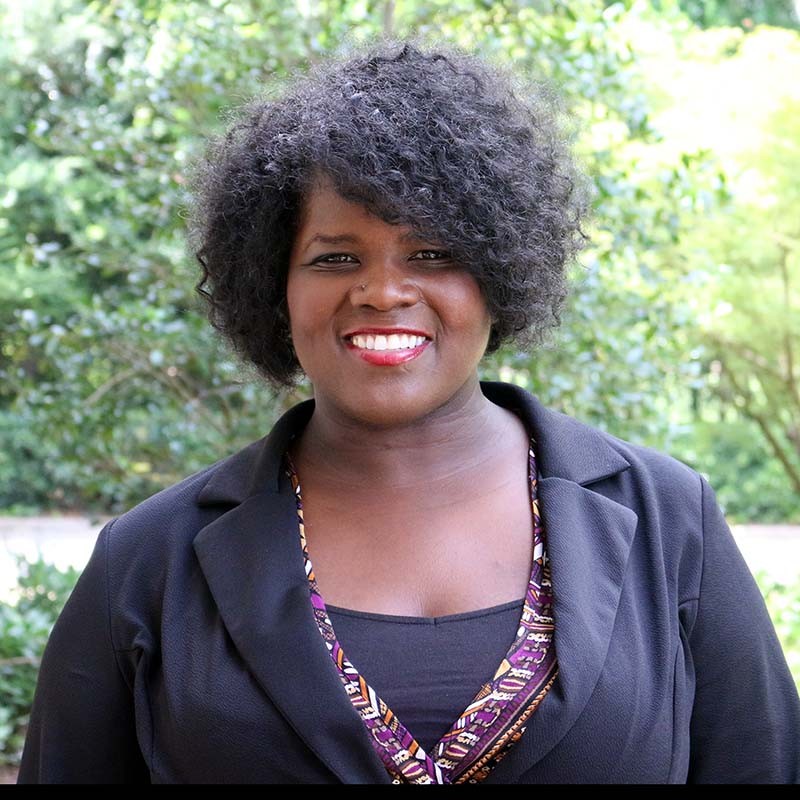
Dr. Karen Johnson, formerly of SIG, was the Project Director of E-WORTH pre-implementation through implementation. Dr. Johnson is currently an Assistant Professor at the University of Alabama School of Social Work.
Tell me more about how you came to be involved with SIG?
I attended a PhD program at the School of Social Work and was in one of Nabila’s classes. She was my dissertation sponsor and Elwin was the chair. This led to the opportunity to become the Project Director of E-WORTH pre-implementation through implementation.
How did E-WORTH come about, and what was your role?
Prior to my time, Nabila and Louisa met with the Fortune Society regarding the original WORTH intervention. NIDA [the funder] requested that rather than focusing on all women, they should focus specifically of Black women given their disproportionate rate of STIs and HIV. This round of funding was to bring it to a real world setting, collaborating with The Fortune Society and the Department of Probation.
Nabila and Louisa [Editor's note: Multiple PIs on the study] invited me to be the Project Director, which was a new role. My role was to help bring the grant to fruition working in close collaboration and under the supervision of Tim, Louisa, Dawn, Nabila, and Elwin, and put flesh on this beautiful grant.
This is powerful: “E-WORTH is woven with Afrocentric themes of historical trauma and resiliency stemming from slavery to Jim Crow to the mass incarceration of Black individuals.” How did you and the team weave in and address these themes?
Twofold: One way was in terms of the intervention itself. On the multimedia sequences we had tested, we encapsulated the intervention on a tablet and very purposely infused (from beginning to end) conversations about race and culture, historical oppression, and systemic issues that worked on together. Over-policing of Black communities, disproportionate sentences, intimate partner violence, and substance use.
We a) talked about it as a team and b) recruited individuals (students, representatives from the Fortune Society who had been in the justice system, and Fortune personnel). We asked: What are some of the intersecting identities related to race and ethnicity that are at the heart of the HIV epidemic for Black women in the justice system?
E-WORTH is quite novel to this day as we are also focused on justice involvement. It is important to share how justice involvement speaks directly to all the other -isms and social determinants of health. As we wrote/demoed the scripts -- including theater demonstrations – we injected language in the script.
We also decided that we would have a virtual facilitator in the intervention (a Black woman) to shepherd the women through the intervention. Afrocentric graphics were used, such as purple for royalty. We renamed the modules based on Afrocentric language that we asked focus group participants to weigh in on. They gave feedback for everything including how we named the characters and things like that.
We wanted a hybrid model with a case worker in the room to start the groups and communicate actively, and facilitate the end. In between, the women would sit and privately view the multimedia intervention and share the notes they took in the platform about their own risk behaviors privately.
The videos we used were with Black women talking about HIV and layered with the latest in prevention science and statistics on disproportionate rates of HIV.
In designing E-WORTH, what were some considerations in making it culturally relevant for the women?
The focus groups were key and lovely. Women were so generous with their stories, including what led them to justice involvement and what led them to risky behaviors. They shared the violence and trauma experiences from so many different sources, including police. They shared how it made them feel when their stories were not believed. Their justice-involvement was overwhelmingly partner-related: ‘My boyfriend told me to hold this thing.’ There were a lot of survival crimes. Now they are in the system and can’t get out, trying to find housing with a felony record.
The E-WORTH media includes five women characters whose stories are represented throughout. When we conducted the focus groups, we asked: Should we make all the characters Black women? To our surprise, they said, ‘No. We do not want to see all Black faces, we want to see the kaleidoscope.” They said it would otherwise seem like Black women in the justice system were “dirty.” They asked us to broaden it to take away from “stigmatizing us.”
We rewrote the script and hired an actor; they still had additional feedback.
How did the women participants react to the sessions?
The women were bonding with each other. There is a part at the end -- “message in a bottle” -- where we ask the women what they would say to another woman about their journey that is inspirational. The women loved that; they wanted to say something to the next woman and included perseverance as a huge piece of their journey.
Women react to E-WORTH
We also invited the women to share songs that inspired them with the rest of the group since music is central to Black culture and has been an integral part of our healing.
Why do you think E-WORTH worked so well?
Cultural congruency and relevance, which is championed by some funders and in the literature. Some things will never lose their significance and importance. One of the keys to dismantling stigma and all of the -isms is communication across identities, and making no assumptions about sameness or difference. Black women speaking to Black women, the significance and salience cannot be overemphasized.
We spent a long time talking about intersectionality, Elwin invoked it in our early planning meetings. Just because I'm a black woman doesn't mean I know about these women’s lives. They are mothers, daughters, sisters, friends, justice-involved, students, workers. We wanted to understand all of these realities.
Who would you like to reach with E-WORTH?
We are trying to reach organizations like The Fortune Society that partner closely with the criminal justice system to serve as a bridge in helping these women and men who come out of the system and find their bearings. E-WORTH can help organizations like them as an available resource.
I am also trying to bring WORTH to Alabama. With the blessing of Nabila and Louisa, I have written grants and had conversations with providers here. I have interviewed 40+ people, and overwhelmingly the single most important issue they face is sexual risk behavior.
We must help women to navigate risk. For women who may be engaging in sex for food or a place to stay or money, the risk is real. E-WORTH meets them where they are, doesn’t judge. ‘This is your reality, we understand, we hear you, we did this with you. We are meeting you where you are and providing the menu of paths ahead so you can understand the percentage of risk.’
E-WORTH is a tool for organizations in the toolbox that they can use. It has a concentric impact, not just on the women in the community.
What can we learn as a society about this work?
The key is empowerment; the solution for any community has always been found in the community. One mistake allies continue to make: Paternalism. The women know and the heart of the work with E-WORTH was empowering African American women on the road to health. We recognize that the level of resiliency within the population is tremendous. We added a few missing pieces, from our research on HIV. We didn’t bring resilience: the women had that.
Read the publication
The SIG team is very grateful for the support of NYC Department of Probation who helped facilitated recruitment of the majority of the participants for this study.
How can organizations implement E-WORTH?
Potential implementers are welcome to get in touch with the SIG team to ask about implementation.
- Principal Investigators: Drs. Louisa Gilbert and Nabila El-Bassel
- First author and original Project Director: Dr. Karen Johnson
- Co-Investigator and Project Director: Dr. Dawn Goddard-Eckrich
- Co-Investigator and Implementation: Dr. Timothy Hunt
- Collaborators: NYC Department of Probation and The Fortune Society.
- Funding source: NIDA
For more information on implementing a similar intervention for justice-involved women (all races/ethnicities) also see Worth Transitions.

